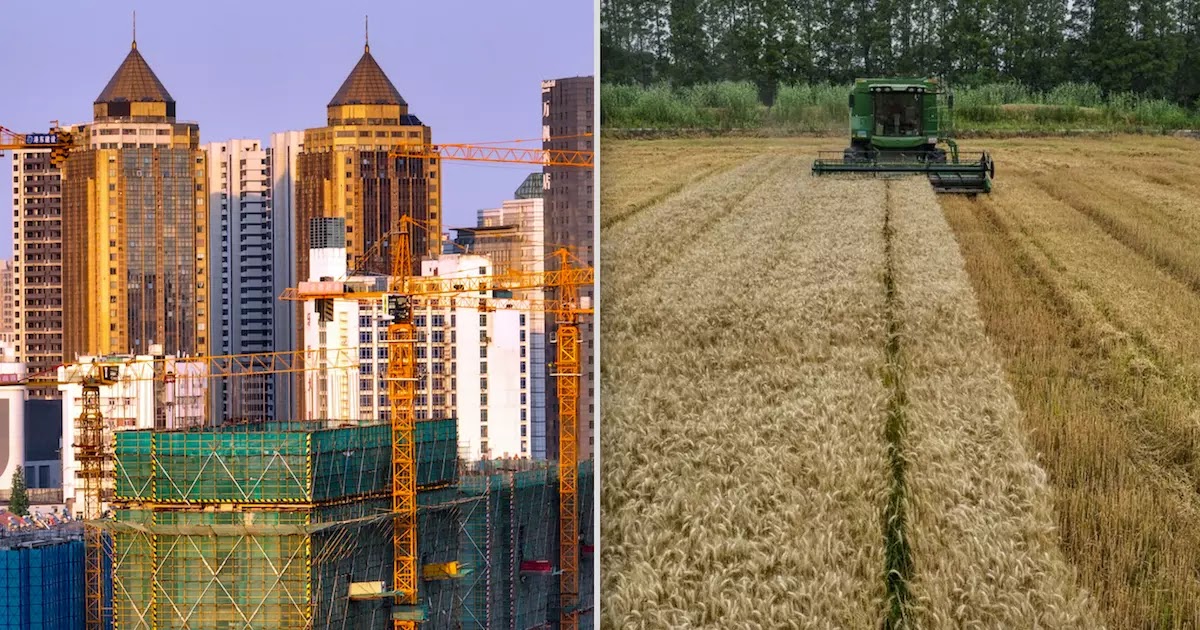
It has been revealed that Chinese property developers are accepting wheat and garlic as down-payments of properties as the construction and housing market plummets.
The Chinese property market is said to have fallen dramatically, with sales falling by 25% in just a few months, as a result of an economic slow-down and continuing Covid restrictions. Other experts have cited difficulties with the internal Chinese economy, corruption and government malinvestment.
One property developer, Central China Real Estate, is now advertising publicly that homes in Minquan County, Henan Province, can be swapped in exchange for wheat, allowing buyers to pay up to 160,000 yuan, or $23,900, of their down payment with the commodity. Earlier this year the same firm offered to accept garlic in exchange for down-payments.
The company in question is said to have a fall in profits of over 40% in the last year while others have asked for bail outs and government assistance.
Shimao Group, another property developer, released a statement saying:
"Due to the significant changes to the macro environment of the property sector in China since the second half of 2021 and the impact of COVID-19, the Group has experienced a noticeable decline in its contracted sales in recent months."
While, Iris Pang, of the troubled Evergrande corporation, added:
"Although this is a positive move for home sales, it is not positive for property developers that have defaulted on their bonds, whether onshore or offshore, as potential home buyers will stay away from homes sold by those developers to avoid non-completion risk and after-sales property management risk. With developer debt stress expected to persist, authorities will probably continue to focus on boosting home sales to stabilize conditions by year-end rather than resort to bailing out developers."
Evergrande, one of China's largest property developers, was said to be near total collapse earlier this year and required state intervention. Many believe that had Evergrande collapsed, or if it were to collapse in the future, it could result in a financial crisis similar to that seen in the United States housing market in 2007.
[Based on reporting by: yahoo!]











COMMENTS